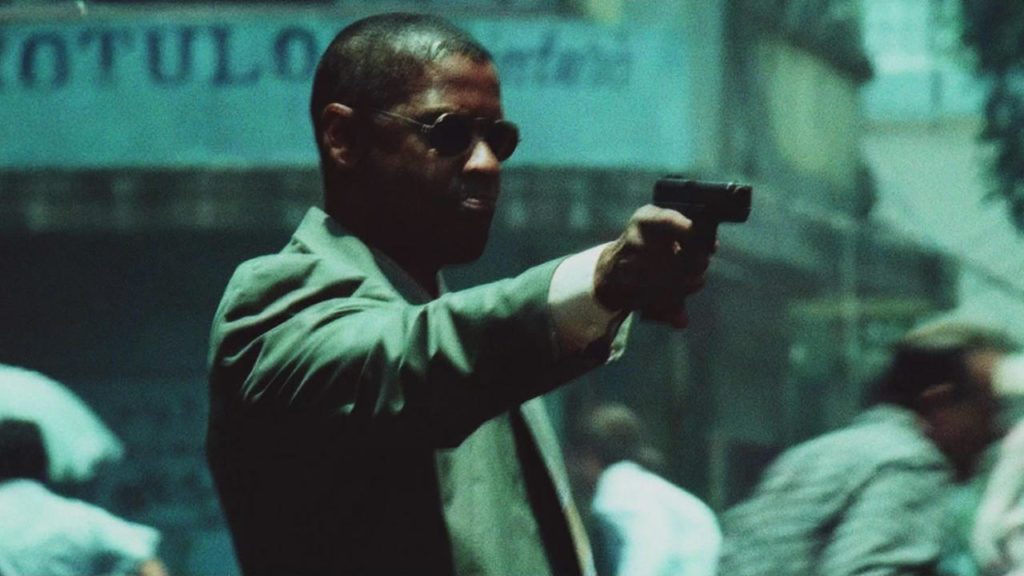Man on Fire Review

RATING: 



(2 STARS)
Man on Fire was the first Tony Scott movie I ever saw. I was in high school and just getting into film. Denzel was the man, and this film cranks his badassery up to 14. I couldn’t have loved it more, and it was a film I couldn’t wait to revisit for the purposes of this marathon.
Count it as my first major Tony Scott disappointment. By and large, the few films of his I haven’t liked are the ones no one seems to like (and there are a few critical misfires that I have unequivocally loved), and while this movie isn’t as bad as Revenge, it fell far short of my memories of it from back in 2004, and most of that falls squarely on the shoulders of one Tony Scott.
Washington plays John Creasy, a former U.S. special forces operative who is in Mexico City to visit his old friend and colleague in arms, Rayburn (Christopher Walken). Creasy is haunted by some of the things his former profession forced him to do, and in Rayburn, he sees a potential path forward. Rayburn has left killing behind him, married, created a family, and started a private security firm, and he gives Creasy a fairly simple job to get started and hopefully get his mind off his sins.
Mexico City, we’re told, is the kidnapping capital of the world, and all wealthy families hire private security guards to keep their children safe. Creasy becomes that for the family of Samuel Ramos (Marc Anthony). He and his wife, Lisa (Radha Mitchell), have a daughter, Lupita or “Pita” (Dakota Fanning), who is wise beyond her years but somewhat desperate for a friend. She clings to “Creasy Bear” in a way that makes him uncomfortable at first, but after a close call with a gun on a particularly dark and drunken night, Creasy softens and finds himself truly invested in the girl’s happiness, as well as her safety. And then she gets kidnapped.
Like Spy Game and Enemy of the State before it, Man on Fire is way too long. For the first hour or so, the run time feels justified. The film takes its time introducing us to Creasy, making us understand why he’s in such a dark place, helping us understand just enough about this family, and most importantly, developing father-daughter chemistry between Creasy and Pita. Creasy goes on an arc in this film – one that most films don’t have the patience in pursuing – and Washington totally owns it. Like Bruce Willis in The Last Boy Scout, this is a flawed movie that succeeds (as much as it does) on the back of insane charisma from its star, but he can only do so much.
The film loses me in its second half. Some individual set pieces are riveting, but there are far too many of them, and when they finally seem to have built to a logical and emotional conclusion, the film keeps going and ends with a major whimper. This portion of the film is also home to my least favorite Tony Scott directorial trope – putting random portions of dialogue on the screen. It’s silly and extremely distracting.
The film’s portrayal of Mexico and Mexicans is also undeniably problematic. It’s based on a novel that was published in 1980 and set in Italy. At the time, Italy apparently had a lot of kidnappings, but when the film was optioned in the early 2000s, that was no longer the case, and a decision was made to shift the setting to Mexico. That’s not inherently problematic, but having only one Mexican character who isn’t a murderer, corrupt, or a pig (in the case of Giancarlo Giannini – notably not Mexican) is not great. The film closes with a card that thanks the wonderful people of Mexico City – pretty clearly a note from studio executives who were concerned about the way the film looks. They weren’t wrong.
Outside of Denzel’s performance, there’s not a ton to love here acting-wise. Dakota Fanning is a little overly precocious. Marc Anthony doesn’t have the gravitas necessary to pull off his role. And Mickey Rourke doesn’t have nearly enough to do. Christopher Walken is decent enough, but he too isn’t given even one scene of his own to shine.
Ultimately, this film is an uncharacteristic misfire from a guy who should have knocked this one out of the park. You could say the same about Revenge, which came a decade and a half earlier and shares a setting and a general plot outline with Man on Fire, and while it’s certainly more energetic than that Kevin Costner vehicle, it overdoes it in terms of sheer number of scenes and the level of flourish within them. He’ll figure this out for the next couple films in the progression, and if I choose to revisit a Tony Scott title from this era in the future, it’ll be one of those. Man on Fire isn’t worth the investment.













